19
Sep
How to merge MailStore archives
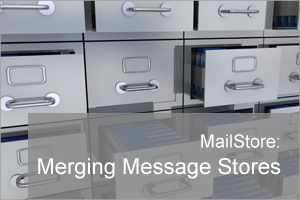 If you have recently upgraded to MailStore version 9 you may not be aware that the new maximum number of messages that an archive can contain has now been increased from 500,000 to 5,000,000 messages.
If you are like me and you have found yourself with a collection of much smaller MailStore message archives it is now much easier to merge these together into a smaller number of larger archives.
If you have recently upgraded to MailStore version 9 you may not be aware that the new maximum number of messages that an archive can contain has now been increased from 500,000 to 5,000,000 messages.
If you are like me and you have found yourself with a collection of much smaller MailStore message archives it is now much easier to merge these together into a smaller number of larger archives.


 If you have ever suspected that a slow performing server is down to slow access to a hard drive you may have started searching the web for a tool to help diagnose the root of the problem.
What you might not know is that Windows has a very handy built-in tool for doing just that and can provide some excellent real-time statistics.
If you have ever suspected that a slow performing server is down to slow access to a hard drive you may have started searching the web for a tool to help diagnose the root of the problem.
What you might not know is that Windows has a very handy built-in tool for doing just that and can provide some excellent real-time statistics.
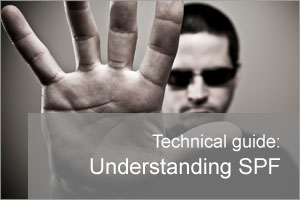 As with a lot of new technologies the real power comes from when they are used by the masses.
Sender Policy Framework or SPF is no longer a new technology and is generally widely used to help preserve email domain reputation for large organisations, but it's as well-known about in the Small to Medium sized business end of the email market.
Spammers know this and have started to target domains that do not have valid SPF records as they can most easily be used to spoof and send spam claiming to be from valid companies. Often these types of spoofed email are used in phishing attacks to then harvest more valuable data, so the smaller companies that can adopt the use of SPF the better.
As with a lot of new technologies the real power comes from when they are used by the masses.
Sender Policy Framework or SPF is no longer a new technology and is generally widely used to help preserve email domain reputation for large organisations, but it's as well-known about in the Small to Medium sized business end of the email market.
Spammers know this and have started to target domains that do not have valid SPF records as they can most easily be used to spoof and send spam claiming to be from valid companies. Often these types of spoofed email are used in phishing attacks to then harvest more valuable data, so the smaller companies that can adopt the use of SPF the better.
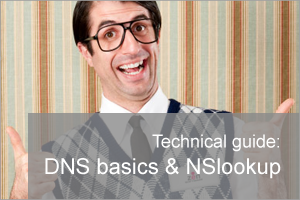 A long time ago in a galaxy far away....well....ok, just a long time ago, I learnt that in order to diagnose the email delivery problems of our customers, understanding the role of DNS would be absolutely fundamental.
Not only that, but I quickly realised the value of the 'NSlookup' DNS tool which is included within Windows.
A long time ago in a galaxy far away....well....ok, just a long time ago, I learnt that in order to diagnose the email delivery problems of our customers, understanding the role of DNS would be absolutely fundamental.
Not only that, but I quickly realised the value of the 'NSlookup' DNS tool which is included within Windows.
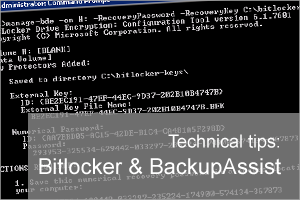 You've probably picked up in the IT press that the developers of TrueCrypt, currently integrated within BackupAssist, are no longer actively developing the software.
You've probably picked up in the IT press that the developers of TrueCrypt, currently integrated within BackupAssist, are no longer actively developing the software.
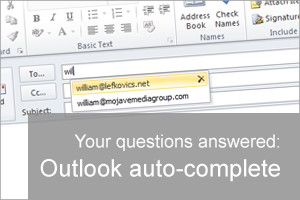 If you've ever needed to recreate your Outlook profile, or have migrated to a new PC, you may have noticed you'll lose your auto-complete information that Outlook keeps when you send a message to a recipient email address.
If you've ever needed to recreate your Outlook profile, or have migrated to a new PC, you may have noticed you'll lose your auto-complete information that Outlook keeps when you send a message to a recipient email address.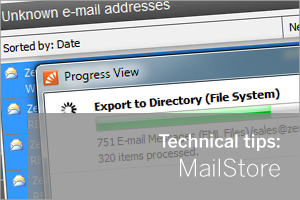 In most deployments of MailStore we recommend your journalling job is configured to archive a selection of journalled or 'copied' emails for all your users.
This type of job is designed to interrogate each message that it archives and look for headers that it can match to decide which user's archive it should store the message under.
In a perfect installation where all of your MailStore users have been setup correctly, every journalled message should find the correct corresponding users archive. But it is common to overlook some addresses and you may find email appearing in the general 'Unknown e-mail archive' instead.
In most deployments of MailStore we recommend your journalling job is configured to archive a selection of journalled or 'copied' emails for all your users.
This type of job is designed to interrogate each message that it archives and look for headers that it can match to decide which user's archive it should store the message under.
In a perfect installation where all of your MailStore users have been setup correctly, every journalled message should find the correct corresponding users archive. But it is common to overlook some addresses and you may find email appearing in the general 'Unknown e-mail archive' instead.
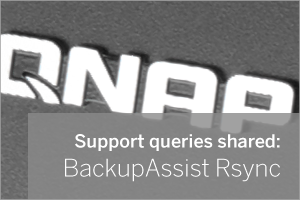 If you're not already familiar with Rsync, it's the method (or 'protocol' to be posh about it) that BackupAssist uses to send data off-site to locations such as NAS boxes or to other servers.
QNAP make a NAS device that's popular with our customers and this week I came across an issue with backing up via Rsync to it that I've seen before...
...cue helpful (hopefully) blog post!
If you're not already familiar with Rsync, it's the method (or 'protocol' to be posh about it) that BackupAssist uses to send data off-site to locations such as NAS boxes or to other servers.
QNAP make a NAS device that's popular with our customers and this week I came across an issue with backing up via Rsync to it that I've seen before...
...cue helpful (hopefully) blog post!
 It's a bit of a niche technical one this but as I've had several reports of it recently I wanted to share this one with you in case it helps.
If you're an MDaemon customer you may have started to see the following errors in the SMTP (Out) logs when trying to send email to some specific external hosts...
“SSL negotiation failed*,*error code 0x80090326”
What this boils down to is an issue where MDaemon and the remote SMTP server cannot find a common set of SSL ciphers that they both have available to use.
It's a bit of a niche technical one this but as I've had several reports of it recently I wanted to share this one with you in case it helps.
If you're an MDaemon customer you may have started to see the following errors in the SMTP (Out) logs when trying to send email to some specific external hosts...
“SSL negotiation failed*,*error code 0x80090326”
What this boils down to is an issue where MDaemon and the remote SMTP server cannot find a common set of SSL ciphers that they both have available to use.